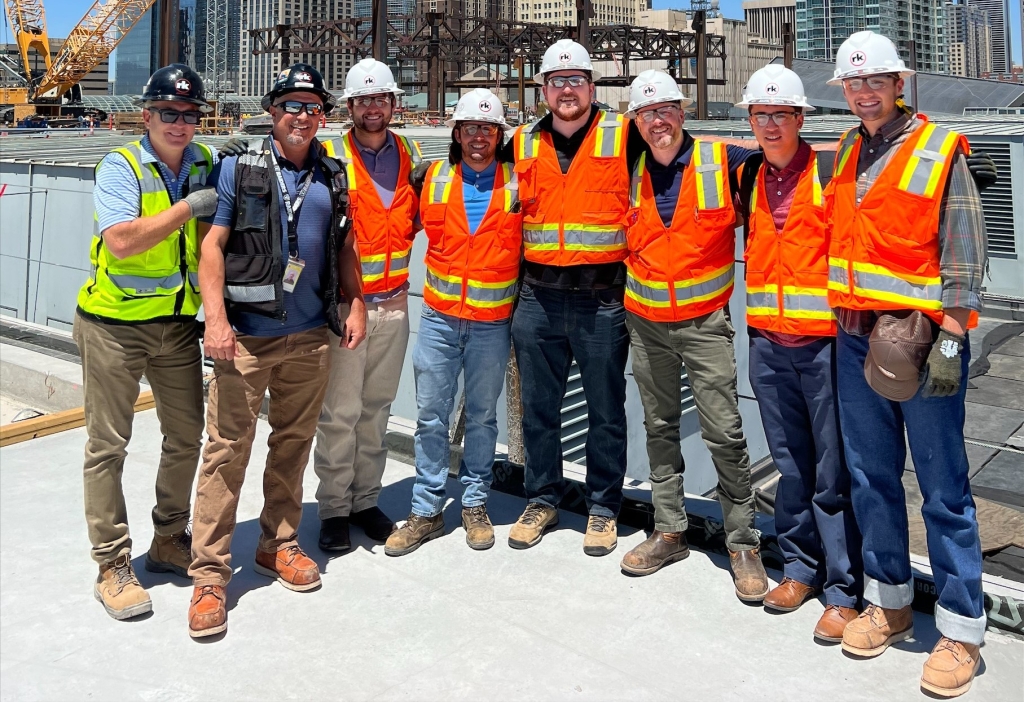Grasping the Gravity of High Suicide Rates in the Construction Sector
Research has shown that the construction industry, which is primarily male-dominated, has one of the highest suicide rates among its workforce. Men have been conditioned by society to suppress their emotions, leading to silent suffering. The industry is well-known for its “tough-guy” persona and emphasis on self-sufficiency, appealing to those with risk-taking tendencies. Nonetheless, this culture can also pose obstacles for those seeking mental health support, warranting sensitivity and consideration.
In addition, construction schedules often require extended work hours and job relocations, resulting in feelings of detachment from loved ones. The physical demands of the job, combined with a sense of isolation, can drive individuals to self-medicate with alcohol, drugs, or opioids, further increasing the risk of suicide.
The Significance of Mental Health in the Workplace
Mental health plays a crucial role in construction sites as it directly impacts the safety and well-being of the crew. A mentally healthy workforce is not only happier but also more productive. Key indicators of mental distress include lethargy, lack of motivation, concentration difficulties or absenteeism.
Promoting mental health and wellness within the workplace can foster a positive atmosphere for employees. As a result, this can aid in retaining and recruiting staff members who are interested in pursuing a career in the construction industry.
Comprehending Mental Health
Maintaining good mental health is an ongoing process. Various factors such as personal loss, financial difficulties and relationship issues can negatively impact a person’s mental well-being and ability to concentrate. In environments with a higher risk, operating heavy equipment or getting distracted due to a lack of focus can be dangerous for both workers and the public.
Encouraging an environment where individuals feel comfortable sharing their personal experiences can empower coworkers to check on their crewmates, thereby fostering a safer workspace for everyone involved.

The Role of Management in Driving Change
As a company, it is important to prioritize the well-being of employees. Creating a sense of community and belonging can be achieved by encouraging everyone to be aware of their surroundings and environment. This is especially important in the construction industry, where transitioning from a culture of discipline to one that prioritizes employee mental health and well-being can make a significant impact.
Leaders and employees can provide essential resources to promote mental health by practicing active listening, compassion and empathy towards one another. This approach fosters a supportive environment that enables everyone to thrive.
Identifying Warning Signs on a Jobsite
When observing individuals, paying attention to their behavior and life circumstances can provide valuable insights into their mental and emotional state. Verbal expressions such as discussing suicide, depression, anxiety or feeling like a burden to others can be red flags. Some behaviors, like being absent often, experiencing a sudden decrease in productivity or engaging in risky actions, may suggest that there are underlying problems.
Additionally, personal stressors such as going through a divorce, losing a job or losing a loved one can all impact a person’s emotional well-being. Awareness of these factors can enhance our understanding and enable us to provide better support.
Implementing Measures to Manage and Prevent Workplace Suicide
Companies can play a crucial role in managing and preventing such incidents by taking proactive steps. One of the most important steps is to identify the warning signs, including changes in mood, social withdrawal, talk of wanting to die or giving away personal belongings. Creating a safe environment where employees can openly discuss their issues and feel supported is essential.
Additionally, providing access to mental health resources and safety guides can help employees deal with such issues effectively. Implementing these measures can help companies establish a safe and supportive environment, significantly decreasing the occurrence of suicide in the workplace.
Fostering a Safe Work Environment
Creating a safe and supportive work environment is vital for the well-being of employees. Encouraging open communication about mental health issues, providing access to resources and professional help, and promoting a culture of support can go a long way in achieving this goal. By taking these steps, we can help prevent suicide and save lives in the construction industry.
Prioritizing Employee Mental Health
At RK, the safety and well-being of our employees is of utmost importance. We prioritize creating a work environment that is physically, mentally and emotionally safe for everyone. Safety is our number one core value and priority. We believe in promoting mental health awareness as an integral part of our culture, whether you work on-site, ina shop or in the office. By providing training, our employees are encouraged to check in with their colleagues to express care for their well-being.
Resources for Mental Health and Suicide Prevention
During difficult times, it’s common to feel isolated and helpless. However, it’s important to recognize that seeking help is a courageous act that demonstrates strength rather than weakness. If you or someone you know is struggling with mental health issues or having suicidal thoughts, remember that assistance is readily available.
Crisis Text Line: Text “Hello” to 741741
National Suicide Prevention Hotline: 988 OR 1.800.273.8255 (English), 1.888.628.9454 (Espanol), 1.800.273.8255 (Deaf and Hard of Hearing)
For more information about mental health and suicide prevention in the construction industry, visit:
- The Construction Industry Alliance for Suicide Prevention
- Construction Financial Management Association
- Construction Working Minds
- Man Therapy
Please note that this blog is for informational purposes only. It should not be used as a substitute for professional medical advice, diagnosis or treatment. Always seek the advice of your healthcare provider with any questions you may have regarding a medical condition or mental health symptom. Never disregard professional medical advice or delay in seeking it because of something you have read on this website.